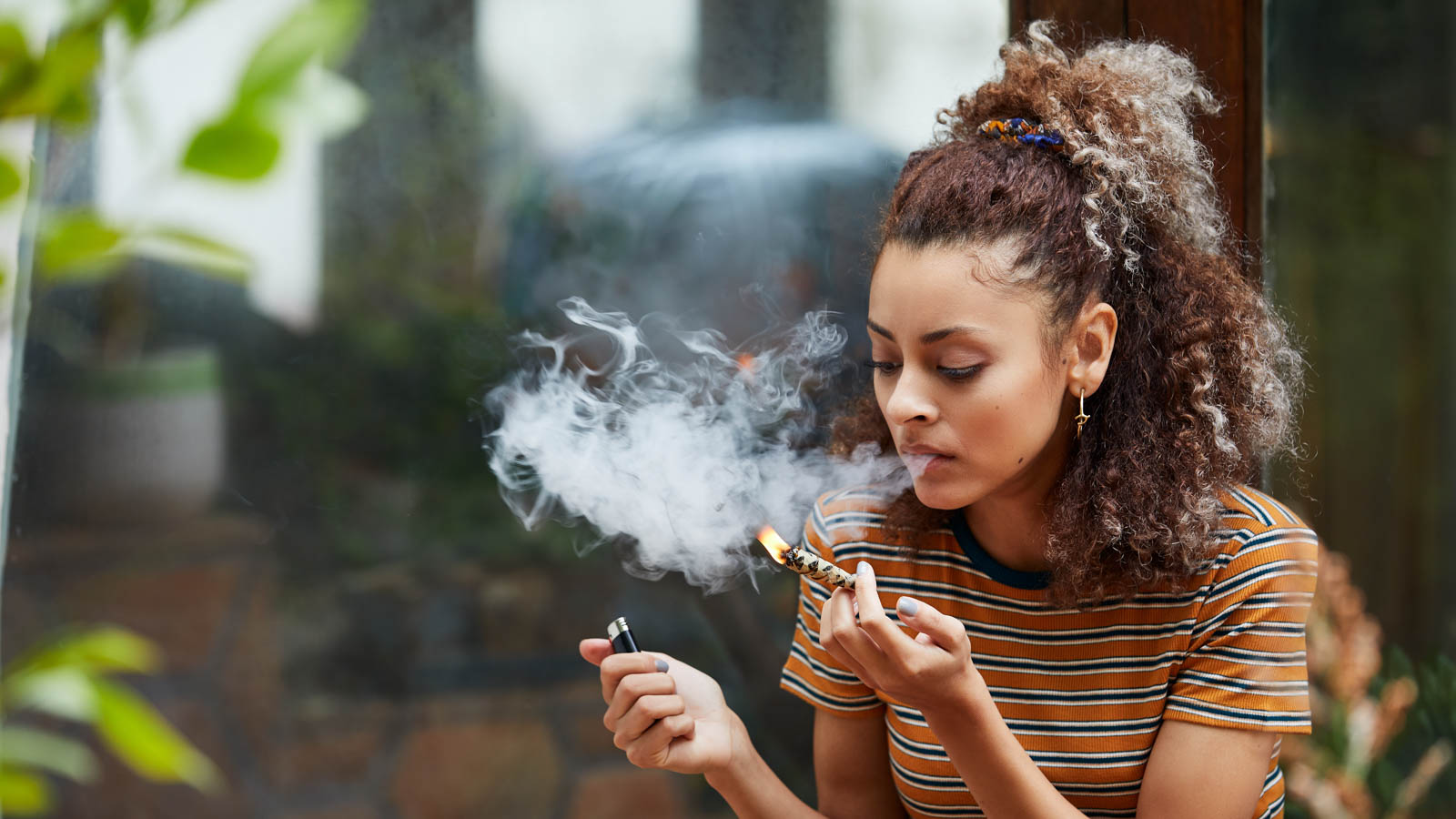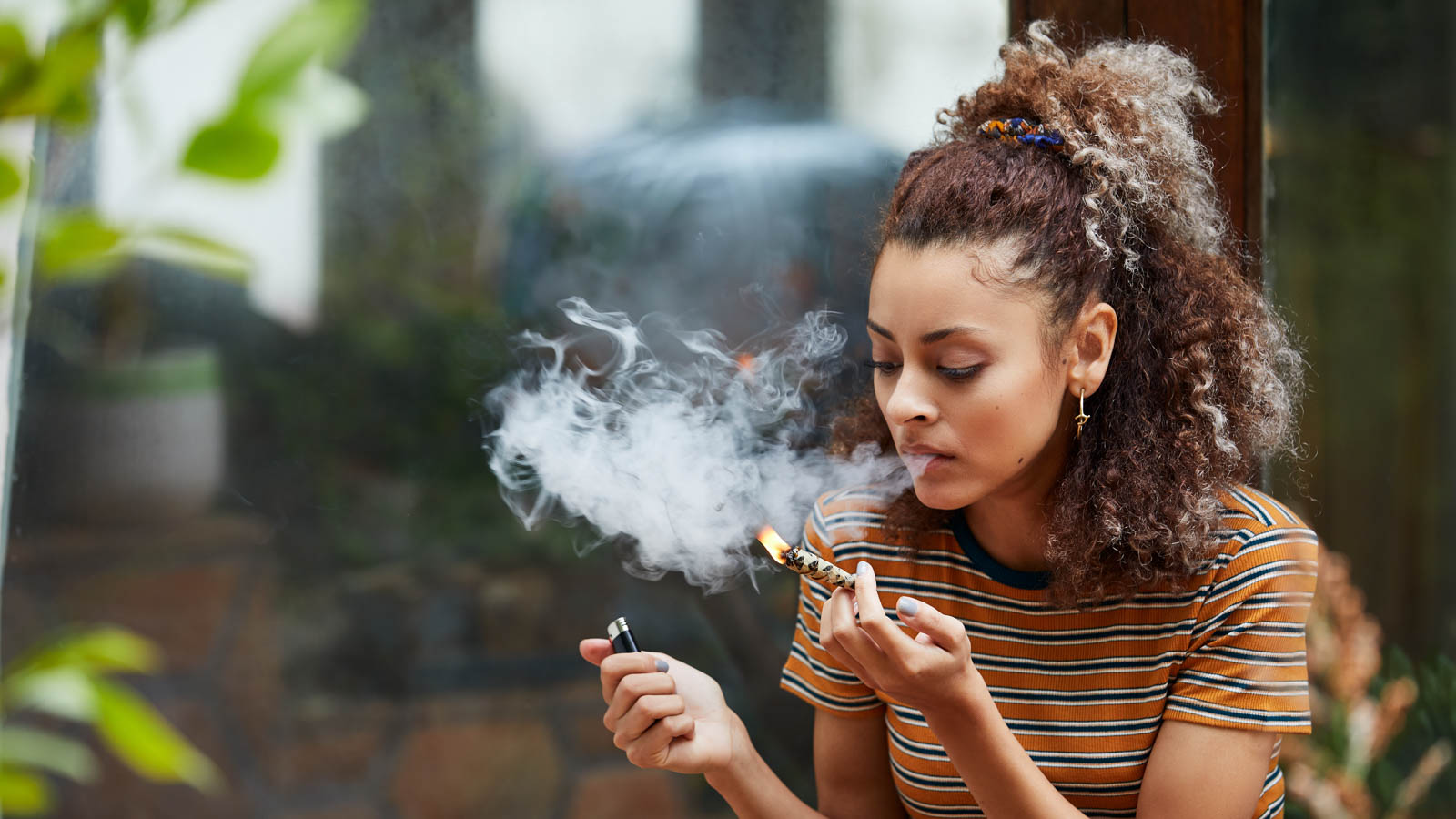
Though no country in Europe has completely legalized cannabis, many cities on the continent take far more open approach to consuming it. Some cities in Switzerland have allowed cannabis clubs to open; Amsterdam has its famous coffee shops; and then there’s Barcelona, with its array of private consumption lounges, where you can smoke openly, just like you might drink socially in a bar. (Attendees of Spannabis 2019 very well may have found themselves smoking a joint in one recently.)
In North America, the idea of public cannabis consumption spaces has been slower to catch on. But with the legalization movement continuing to grow, so too is the push for places to smoke — and with new licensing possibilities — West Hollywood, California, could become a leader in public cannabis consumption.
Barcelona has a thriving scene of social consumption lounges for marijuana.
West Hollywood recently approved eight licenses for consumption lounges. One of those licenses went to Lowell Farms, for its proposed lounge/restaurant called “Lowell Farms: A Cannabis Cafe.”
“We just felt like what was missing was a high-end, farm-to-table restaurant where instead of having a glass of wine … you could consume cannabis,” said Sean Black, founder of Lowell Farms. To have consumption lounges solves two problems in the community. One is the consumer who wants to go out with friends and smoke cannabis instead of drinking, in a place that looks and feels like a night out. The other is tourists to the city who want to partake in California’s recreational cannabis, but don’t have a place to legally do so, since most hotels don’t allow smoking. Cannabis consumption lounges solve both of those problems.
For proponents of cannabis consumption lounges, the appeal to both experts and beginners alike is one of the strongest arguments for allowing them to operate, and part of the reason that they have been successful in major tourist hubs in Europe.
“I think this is the absolute safest place for you to try it first,” Black said. “On the other hand, if you’re like me — someone who’s been smoking cannabis for a long period of time and you’re very comfortable and experienced — I also think we’re the best place for that.”
With the granting of those eight licenses for consumption lounges, West Hollywood joins the ranks of a handful of global cities that have either tolerated or outright regulated the spaces. Black said that he and his colleagues visited Amsterdam, Vancouver and Barcelona for an idea of what a successful system might look like while they were working with West Hollywood officials to develop the licensing system.
Lessons from Toronto and Denver
They could have also looked to Toronto, a city where the consumption lounge laws are going in the opposite direction. While Toronto had a briefly flourishing network of vapor lounges, the onset of legalization (particularly, the legal equation of cannabis vaporizers and e-cigarettes, the use of which are also heavily restricted in Ontario) has left consumption lounges out to dry.
Abi Roach has been running Toronto’s best-known vapor lounge, Hotbox Cafe, for nearly 20 years. But when legalization came, the lounge had to ban vaping. Now it can only allow smoking outside on the back patio. Since then, Hotbox Cafe’s vaporizer sales have dropped by 30 percent, and sales of smoking apparatus such as papers and pipes have risen 30 percent.
“That blew my mind,” she said.
In Denver, attempts to build consumption lounges have hit roadblocks since the state legalized recreational cannabis. A Colorado Senate bill to regulate consumption lounges was rejected in committee in 2018; the bill would have provided exemptions from anti-smoking and -vaping laws to allow indoor cannabis use. The city of Denver voted to regulate these spaces in 2016, but the strict regulatory requirements have made the uptake slow: only two businesses have been awarded “social use” licenses, and one of them closed abruptly in February 2019 after only a few weeks of operation.
While West Hollywood, California, is about to enter the realm of cannabis consumption establishments, Barcelona’s consumption lounges are part of the Spanish Mediterranean city’s fabric.
Denver’s experience is emblematic of the regulatory problems that consumption lounges face across the country. In a broader sense, there is a concern within legal states in the U.S. that consumption lounges might be a step too far for a federal government that has maintained prohibition. In 2017, an Alaskan marijuana control board member named Mark Springer called them “a red flag in front of federal law enforcement.” At the state level, consumption lounges generally compel changes to smoke-free laws. Then-Democratic Colorado Gov. John Hickenlooper vowed to veto any state bills that allowed for indoor smoking, which can be hard to justify politically, since those state bills can be seen as being pro-smoking even if its outdoors. On a more granular level, as the abrupt closure of Vape and Play in Denver might suggest, consumption lounges haven’t perfected a business model yet. Though consumption lounges have worked elsewhere, there’s no proven business model under a regulated system yet.
Meanwhile in Canada, Roach says the biggest stumbling block politically is getting leaders on board with an idea that is appealing and intuitive to many cannabis users, but politically fraught.
“They’re afraid of being in support of smoking,” Roach said. “Yet you’re taking away the No. 1 consumption choice?” She contrasts this with enthusiasm for edibles, which she says are much easier for politicians to understand. “Politicians love edibles — you know why?” she asked. “Everybody eats.”
All of this reduces safety, Roach contends. She has been stepping up her lobbying efforts to the provincial government, the body that writes smoke-free laws, and at least one licensed producer (Aurora) has lent its support to this cause.
First Impressions in West Hollywood
Back in West Hollywood, Black said that the introduction of consumption spaces means the chance to create and define the city’s culture around them. For some, it could be their first introduction to cannabis, so they’ve got to make it a good one. Their cannabis cafe, set to open this summer, will boast a chef trained in a Michelin-star restaurant, who makes both infused and non-infused meals. They plan to have tableside joint service (like a server at a Mexican restaurant making guacamole, is his comparison). On Sundays, the plan is to have four members of the Los Angeles Philharmonic in to play music for brunch.
We believe that the way to normalize and de-stigmatize cannabis is to elevate it, and to treat it with respect and reverence. To treat it with class. Click To Tweet
Part of this is just good business, but part of it is about Lowell Farms’ responsibility as a first-mover to set some sort of standard for the rest of the industry, Black said.
“We believe that the way to normalize and de-stigmatize cannabis is to elevate it, and to treat it with respect and reverence. To treat it with class,” he said.
In doing so, and by taking the time to set up a proper regulatory scheme around it, West Hollywood (and the greater Los Angeles region generally) could find itself becoming a global center for consumption spaces — an Amsterdam or Barcelona of North America. Those cities have seen industries flourish and communities develop despite prohibition. In West Hollywood, Black said that Lowell Farms can accomplish what those cities have, but legally. “This is ‘white market,’ ” he said. “We’re completely allowed, and licensed, and legal. We can spend millions of dollars building a beautiful establishment. We can do it high end and we can do it right.”











